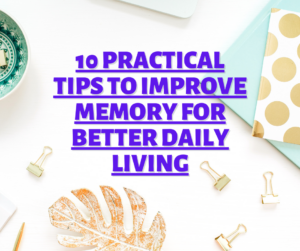We all crave calm amidst the daily grind. But with responsibilities and the unexpected, stress can feel constant. This is where stress management comes in, offering tools to improve mental and physical well-being. It’s about taking charge and building resilience to better handle everyday life stress.
Stress management isn’t about erasing stress. It’s about equipping yourself with healthy habits to navigate challenges and gain control. It starts by understanding your stressors and developing personalized strategies.
Table of Contents:
- Understanding Your Stress
- Effective Stress Management Techniques
- The Four A’s of Stress Management
- Conclusion
Understanding Your Stress
Stress is a natural human response. The American Psychological Association explains it’s your body’s way of reacting to perceived threats. This “fight-or-flight” response preps us to confront or avoid the situation. Chronic stress can contribute to a variety of health problems.
Identifying Your Stress Triggers
Stressors can be major life changes or everyday pressures. HelpGuide.org points out that identifying what causes you to feel overwhelmed is key to stress management. Consider keeping a stress journal to pinpoint these triggers. This journal can help identify physical symptoms.
Consider areas like work, relationships, finances, and health. Money problems and relationship stress are discussed on the Royal College of Psychiatrists website and Mental Health Foundation website, respectively.
Effective Stress Management Techniques
There’s no one-size-fits-all approach to stress management. Finding strategies tailored to your stressors is crucial. This allows you to feel good and better equipped to apply cancel to whatever is causing your stress.
Lifestyle Adjustments for Stress Management
Lifestyle adjustments play a crucial role in managing stress. For example, the NHS recommends managing your time more efficiently. This can reduce overwhelm and create quality “me time,” improving your work-life balance and decreasing long-term stress.
Other essential elements include regular physical activity, restful sleep, and a healthy diet. These are cornerstones of good stress management and reduce stress in older adults.
| Lifestyle Adjustment | Benefits for Stress Management |
|---|---|
| Regular Exercise | Releases endorphins, boosts mood, and improves sleep quality. This can also relieve stress and improve mood. |
| Restful Sleep | Recharges your body and mind. It’s essential for mental clarity and can lessen stress daily. |
| Healthy Diet | Provides necessary nutrients. It also helps avoid unhealthy coping strategies like dependence on substances. Eating healthy reduces the risk of many health conditions and helps manage stress. |
Mindfulness and Relaxation Practices for Stress Management
Mindfulness and relaxation practices calm your mind and promote a sense of control amidst stress. This can positively affect both physical and mental health and reduce feelings of being overwhelmed.
- Mindfulness Meditation: Focus on your breath and observe thoughts without judgment. This helps identify stress triggers.
- Deep Breathing Exercises: Slow, deep breaths activate the body’s relaxation response, counteracting fight-or-flight and easing muscle tension.
- Yoga: Combines physical postures, mindful movement, and controlled breathing, a practice Mayo Clinic promotes for stress relief. It can also improve mood.
Mayo Clinic staff supports these practices for stress management and recommends them to maintain public health and spend quality time. Consider incorporating mindfulness meditation for reducing stress levels.
Seeking Support and Setting Boundaries
Sometimes, stress requires external support. Organizations like The Samaritans and the 988 Lifeline offer crucial resources during challenging times. These resources can provide emotional support, offer health tips, and teach relaxation techniques to those who avoid unhealthy habits.
Talk openly with trusted friends, family, or colleagues. Sharing your feelings can be significantly more beneficial than keeping them bottled up. Helplines, such as the one sponsored by the Citizens Advice service, provide additional support. Consider looking into mental health services for help managing stress and related health topics.
Professional help from a counselor or therapist provides tools to cope with and manage long-term stress. They can offer insights into identifying what’s causing stress, teach stress symptoms recognition, and help navigate life stress.
The Four A’s of Stress Management
HelpGuide.org offers the Four A’s framework for stress management: avoiding unnecessary stress, altering the situation, adapting to the stressor, and accepting things you can’t change. These core elements can help prevent sleep problems in older adults.
Avoiding Unnecessary Stress
This means eliminating smaller hassles, not ignoring big problems. As seen in stress management articles, like this one from HelpGuide.org, this might involve automating bill payments to avoid late fees or leaving for your commute earlier for a calmer experience. Reducing exposure to negative news on social media can also decrease daily stress and stress mental health.
Altering the Situation
If you can’t avoid a stressor, consider altering the situation. Expressing your needs clearly and respectfully or delegating tasks can alleviate pressure. This allows individuals to learn how to manage stress and be more proactive in their approach.
Adapting to the Stressor
When change isn’t feasible, adapt by changing your reaction. This involves adjusting your mindset. Adapting to the stressor requires a proactive mindset to relieve stress and feel more in control of situations.
Accepting the Things You Can’t Change
Accepting situations beyond your control is essential, a point the Mental Health Foundation emphasizes for growth. Trying to change the unchangeable only increases frustration. This acceptance fosters resilience and allows easier recovery from setbacks. Understanding your stress triggers can help in the identification of things you can and can’t control and what is causing stress. Accepting situations requires mental fortitude but reduces the possibility of stress worsening and improving your mood.
Conclusion
Stress management takes consistent effort. Start small, experiment with different techniques, and identify what calms you. This personalized approach strengthens your response to life’s challenges. You’ll be better equipped to identify stress and discover how to reduce stress. Be sure to apply cancel whenever you need to block negativity or something that makes you tense and causes you stress.
- Make time for relaxation and prioritize quality time for yourself.
- Use quick stress relievers when overwhelmed, such as meditation, the Stress Management Center, or Stress Management References. It is essential to seek help for both your brain and body to relieve chronic stress and its symptoms.
- Practice gratitude to shift from negative thoughts and find humor. This can do wonders to improve your brain-body connection.
Stress management isn’t about eliminating stress. It’s about building coping mechanisms. This empowers you to navigate challenges with greater ease. By understanding your stressors and using tailored strategies, you gain control, improving your mental and physical well-being.


